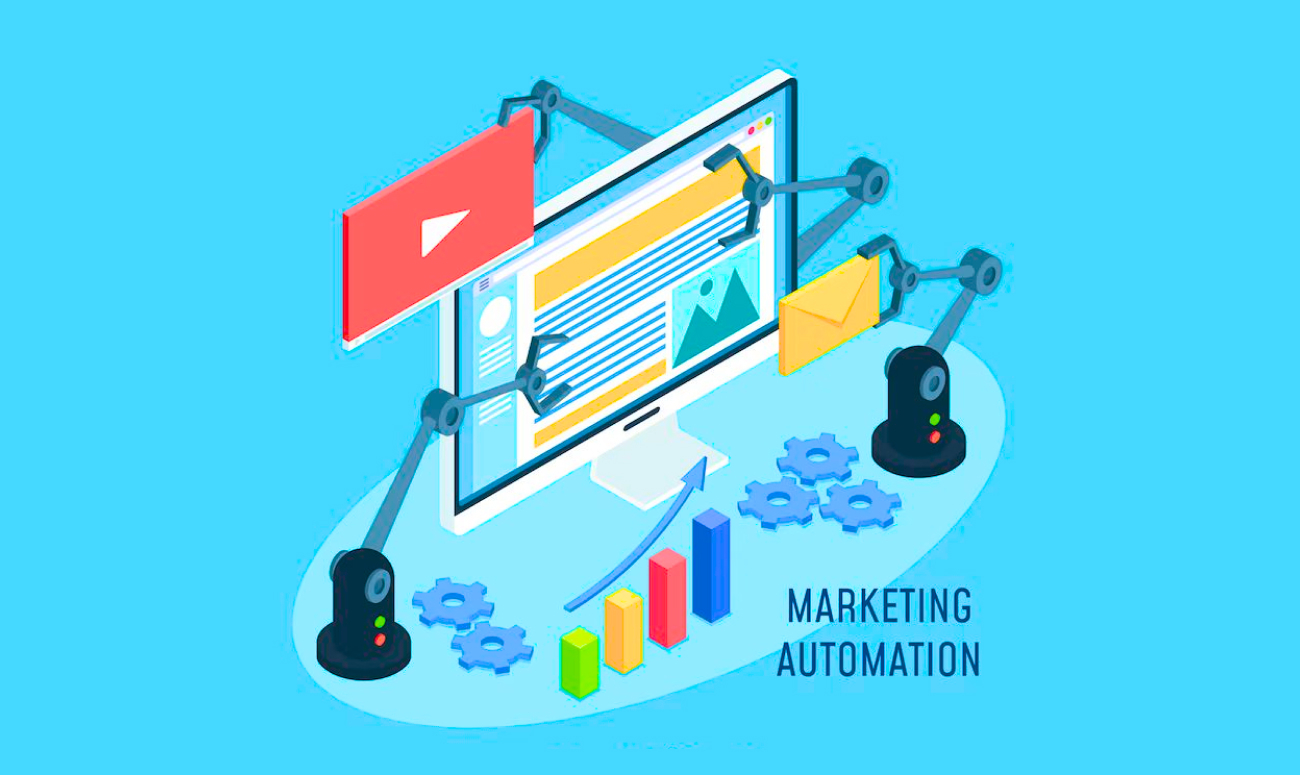
Do you need more work to manage customer data and relations? Do you find yourself constantly bogged down with a seemingly endless list of tasks, searching for an easier way to complete them on time and under budget? Also, to maximize the productivity of your business, it’s essential to have the ability to efficiently and quickly store, access, and analyze customer information. In the constantly evolving business landscape, companies must leverage every opportunity to optimize their operations and reduce the unnecessary expenditure of resources. One such opportunity lies in automating redundant, repetitive tasks – a practice known as workflow automation.
By leveraging the power of CRM technology, business owners can automate repetitive processes, decrease monotonous data entry pressures and increase productivity levels -all while strategically monitoring performance metrics to stay ahead of the competition. This guide will provide business leaders with a comprehensive breakdown of all the essential elements needed to maximize productivity through CRM and workflow automation solutions. It will explain what business leaders how to beginners the various benefits of workflow automation and everything they need to get up and running quickly!
What is Workflow Automation in CRM Software?

In a fast-paced, digitally-driven business world, workflow automation in CRM software serves as a cornerstone for accelerated growth and improved customer experiences. CRM solutions with workflow automation enhance remote work capabilities by providing unified access to crucial customer data, enabling seamless communication, task management and collaboration among team members working from disparate locations.
Workflow automation in CRM (Customer Relationship Management) software has emerged as a vital tool for businesses that streamline and simplify business processes by reducing manual intervention, thus increasing efficiency and accuracy. The innovative workflow automation capabilities mainly focus on handling repetitive and manual tasks and data transfers. In addition, it triggers a sequence of actions such as creating tags, assigning tasks, sending emails/texts, notifications, etc. As a result implement workflow automation, employees can focus on mission-critical activities, such as building meaningful relationships with customers and crafting innovative business strategies and sales growth. Moreover, it eliminates manual data entry mistakes, often resulting in long-term repercussions.
CRM software with workflow automation solutions, such as business process management and data accessibility, allows businesses to design, execute, monitor, and optimize their business processes for improved customer experiences, increased employee productivity, and better decision-making, leading to overall business growth and competitive edge in the market. Further, workflow automation tools can intelligently optimize various business processes, from lead nurturing and sales follow-up to customer support and data management.
The Benefits of Workflow Automation in CRM Software: How it Can Maximize Your Productivity

CRM software with workflow automation can help businesses maximize their productivity by streamlining and automating tedious and repetitive tasks. Here are some of the crucial benefits of workflow automation in a CRM system:
Automate repetitive tasks
Workflow Automation is an excellent tool for businesses to reduce manual tasking, monotonous tasks at work, and repetitive processes. Automated workflows also have the added benefit of providing automatic notifications so that nothing is overlooked or forgotten, cutting down on manual data entry and minimizing manual human intervention – all of which previously consumed hours of manual labor. In addition, by implementing automated workflows within their business process management, businesses can save time completing mundane tasks such as creating tags, task creation and assignments, deals, and email sequences. If companies seek an effective way to boost efficiency and accelerate progress, workflow automation is an excellent exploration method.
The following types of workflows are automated:
Assign/Remove Tags for Task Creation and Assignment
Create Deals
Update the Sales lifecycle stage
Add Notes
Call Webhooks
Improved tracking of customer data and analytics

With efficient communication tools built into workflow automation tools, employees can increase their productivity and help collect timely customer data and analytics. This will further aid in creating the right key performance indicators that monitor the employees’ ability to be more efficient and reliable within their roles. Furthermore, implementing internal surveys will improve employee engagement, making them stakeholders in collecting customer data. This allows employees to empower themselves while challenging them to accomplish tasks as quickly and accurately as possible.
Streamlined communication and response time to customers

Automation is an essential component of any successful business. Organizations can significantly improve their response times and customer service by employing automated processes and communication tools specifically designed to streamline customer communication.
Automation tools can make a world of difference in customer interaction, allowing businesses to effortlessly analyze their customers’ data through analytics and generate real-time reports to stay up-to-date, provide timely responses, and better understand their current customer position. An efficient workflow will offer invaluable insights and enhance communication with speedy responses that foster clarity across the board.
This helps drive the business’s goals forward, allowing for more customer satisfaction and increased revenue. In addition, an automation platform provides a way for companies to quickly, effectively, and consistently communicate with their customers to establish a better, more effective relationship. Companies that leverage automated processes and specialized communication tools can dramatically improve customer loyalty and efficiency.
Optimal Lead Nurturing
With workflow automation within CRM software, the lead generation process becomes a seamlessly coordinated activity, substantially enhancing efficiency and reducing the likelihood of errors. For instance, when a potential customer fills out an online inquiry form or contacts the company from multiple channels, such as social media, or email campaigns, CRM software can automatically capture the information and create a new lead within its system. Following this, the software can sorts, categorizes, and assigns, distribute the lead to the appropriate sales representative based on pre-defined distribution rules, such as geographical location or product interest. Simultaneously, the CRM can trigger personalized email campaigns or SMS messages in response to specific actions taken by a potential client, schedule follow-up calls, or set task reminders, which are activated to maintain constant communication with the prospect, ensuring that no opportunity slips through the cracks and ensuring timely delivery and relevant communication throughout their journey.
Simultaneously, the CRM software centralizes all lead information and tracks every interaction, providing a comprehensive view for the sales team to analyze, forecast, and make data-driven decisions. This level of automation frees up valuable time for employees to focus on more strategic tasks and relationship-building and ensures that every potential opportunity is noticed due to human oversight or miscommunication. Consequently, companies utilizing CRM software to automate their lead generation processes stand at an advantage in responsiveness, lead nurturing, and overall sales conversion rates.
Increased efficiency and accuracy, reducing cost

Workflow automation in CRM software is pivotal in increasing efficiency and accuracy and reducing manual labor; therefore, reducing manual work and errors increases efficiency in business processes. The delivery of pertinent and quick customer data is measured as efficient for the whole business process.
One significant aspect and benefit of workflow automation is the ability to automate repetitive tasks. In any organization, numerous tasks demand employees’ attention daily, including data entry, billing process sending follow-up emails, and generating reports. By streamlining these repetitive tasks through workflow automation benefits, CRM software allows employees to focus on more important tasks like business strategies, customer engagement and enhancing sales opportunities.
Moreover, workflow automation can immensely contribute to cost savings. By automating manual processes and reducing the need for human intervention, companies can save money on labor costs while expediting various tasks. Automating manual processes and workflows positively impacts a company’s bottom line through cost savings and increased ROI. A report by Accenture showed that 53% of companies had increased revenue through automation, while 45% had achieved cost reductions. Furthermore, a study by Deloitte found that the average payback period for RPA investments is 12 months, with an expected ROI of over 200%.
Workflow automation also streamlines and simplifies complex processes. For instance, it enables the creation of an automated sales pipeline that progresses leads through different stages, ensuring that every opportunity is noticed.
Optimize communication channels
Furthermore, CRM with workflow automation allows organizations to optimize their communication channels. By automating follow-up emails, reminders, and notifications, the software ensures that no customer inquiry goes unanswered or is delayed, enhancing customer satisfaction and retention.
Comprehensive reporting capabilities

Adopting workflow automation in CRM software can also offer long-term benefits through data-driven insights. It allows organizations to analyze patterns, predict trends, and make data-informed decisions that can drive growth and success. For example, the software can provide valuable insights into the most productive marketing campaigns, customer preferences, and up-selling opportunities.
Reduced risk of errors
Another critical advantage of workflow automation in CRM software is the reduction of human errors. Manual data entry and processing are prone to errors and time-consuming tasks that can lead to inaccurate information in the system. This may create obstacles in decision-making, customer service, and sales growth. With automated manual workflows, the instances of such errors(human error) are significantly reduced, thus improving the credibility of the data and resulting in better decision-making processes.
According to a study by Experian, 66% of data errors are a direct result of manual entry. By automating these processes, companies can avoid costly mistakes and improve the quality of their output.
Effective Interdepartmental Coordination
Workflow automation is a game-changer for interdepartmental coordination, as it automates entire workflows, streamlines processes, minimizes human error, and boosts overall efficiency. By leveraging cutting-edge technology, organizations can configure and automate tasks without requiring any coding knowledge, empower employees to automate jobs to focus on strategic initiatives, and drive higher sales.
For instance, consider a finance department that regularly liaises with sales and human resources teams. Automating processes for invoice generation, task management, payroll management, and expense approvals eliminates tedious tasks and minimizes the risk of errors. This saves time and improves communication and transparency across departments, fostering a well-integrated and synchronized work environment. Moreover, workflow automation enables businesses to track key performance indicators, optimize resource utilization, and identify potential bottlenecks in real-time, paving the way for continuous improvement and promoting seamless team collaboration.
Enhanced competitiveness
In a world where businesses are vying for customer attention, the ability to deliver high-quality products and services quickly and efficiently can significantly increase competitiveness. Workflow automation can streamline processes, reduce time-to-market, and enable quicker responses to market demands.
Take the case of IBM, which utilized RPA to automate various tasks in its procurement division. By doing so, the company reduced processing times by 80%, achieved a 40% reduction in manual effort, and increased productivity, resulting in a more competitive position in the market.
Why Workflow Automation is Crucial for Your Business Growth

An increasing number of studies and business news confirm that companies that embrace workflow automation experience significant benefits, including increased efficiency, reduced human error, and enhanced competitiveness.
Workflow automation allows businesses to scale up or down their operations as needed quickly. This enhances flexibility and makes it easier for companies to adapt to changing market conditions.
Real-life Examples and Metrics of Business Success with Workflow Automation
1. Cisco Systems: The networking giant faced bottlenecks in its sales order management process. By implementing an automated workflow, Cisco reduced the sales process cycle time by 90%, from 21 days to 2 days, allowing them to save approximately $270 million annually.
2. Procter & Gamble: The consumer goods company implemented a procurement process automation tool to eliminate manual data extraction in their invoice management. As a result, P&G saved over 50% in process costs, cut lead time from 5 days to 1 day, and had an 80% reduction in manual handling errors.
3. DBS Bank: This Singaporean bank implemented an intelligent workflow automation system for customer onboarding, manual data input, and compliance checks. The bank saw a 70% reduction in the time taken for account opening and a 50% drop in processing costs.
Metrics to Monitor the Success of Workflow Automation
Workflow Automation is crucial for business growth as it helps streamline processes, reduce time-to-market, and increase efficiency. To measure the success of workflow automation efforts, businesses should track key metrics such as cycle time reduction, productivity improvement, and task throughput. Additionally, measuring customer satisfaction ratings can also help evaluate whether workflow automation positively impacts the customer experience. Here are a few metrics to measure how workflow automation is helpful to your business:
1. Time savings: Calculate the difference in time spent on manual tasks before and after implementing an automated workflow. This metric will demonstrate the efficiency gains achieved by automating processes.
2. Error rate: Monitor the number of errors occurring due to manual intervention before and after automation. A decrease in error rates indicates improved process quality.
3. Cost reduction: Measure the difference in costs associated with manual labor and the cost of implementing and maintaining an an automated workflow system. This metric will reveal the financial benefits of a workflow automation solution.
4. Customer satisfaction: Gauge customer satisfaction after some process improvements and introducing workflow automation. Improved response times and fewer mistakes should result in better customer service reviews.
In summary, using workflow automation technology is fundamental to business growth, allowing companies to streamline processes, reduce errors, and improve overall productivity. In addition, by investing in workflow automation systems, businesses can focus on long-term strategies, ultimately leading to increased revenue and a stronger competitive position in the market.
How to Choose the Right Workflow Automation Software for Your Business
When choosing the right workflow automation software for your business, there are several key considerations you should take into account.
Identify your business needs and prioritize them.
Businesses must identify and prioritize their needs when selecting the right workflow automation platform or software. Companies should consider factors such as cost, scalability, integration capabilities, and security when making their selection of workflow automation benefits. Additionally, they should ensure the software is user-friendly and can handle complex workflows. Thereby meeting business goals.
Research the different types of workflow automation software available.
Various types of workflow automation software are available, depending on business needs. For example, simple tools like email rules and macros can be used for basic automated tasks such as document approval and vacation requests. However, more sophisticated tools, such as robotic process automation (RPA), may be needed for more complex processes involving multiple systems. RPA is a type of artificial intelligence that mimics human actions and automates manual processes.
Check the software’s compatibility.
Before investing in any other workflow management or automation software, businesses should consider its compatibility with existing systems and processes. The business automation software should be able to integrate smoothly with existing platforms and operations. Additionally, it should ensure that it can handle large volumes of data and adapt to changing business needs.
Compare features and prices to determine the budget.
Businesses should compare features and prices when selecting workflow automation software to determine the proper budget. They should consider the features offered by each provider and compare them to their current needs. This will enable businesses to get the most value for their money. Companies should also consider pricing models such as subscription-based plans and one-time fees to optimize their investment.
In addition to features and prices, businesses should evaluate other aspects of workflow automation software, such as scalability, security, and integration capabilities. These factors will help them select a system that is tailored specifically to their needs and can accommodate future growth.
Test the selected software to ensure compatibility.
Testing the selected software for compatibility is essential before businesses implement any workflow automation system. Companies should first create a test environment to simulate real-world conditions to ensure that the chosen software works with its existing systems. This will help them identify any issues and optimize the configuration of the software before deploying it in production. Businesses should also stress-test the software by simulating heavy workloads and ensuring it can still deliver satisfactory performance. Additionally, they should check for potential security issues such as data leakage or unauthorized access to sensitive information.
Make sure that customer support is available.

Businesses should ensure that customer support is available when selecting workflow automation software. This will allow them to quickly get assistance when they encounter any issues with the software or need guidance in setting up and implementing it. Customer support should include email, phone, and live chat options and access to tutorials and knowledge bases. Additionally, businesses should look for a provider that offers 24/7 customer service with a team of experts knowledgeable about the particular software solution being implemented.
The availability of customer support is essential for ensuring that users can effectively utilize the workflow automation CRM software and get help whenever needed. It also helps troubleshoot any issues that may arise during the implementation or operation of the software. Moreover, having access to technical expertise can be beneficial in optimizing the system’s performance and scalability over time. With comprehensive customer support, available businesses can maximize their investments by getting the most out of workflow automation CRM software.
There are many workflow automation software tools available in the market. Still, EQUP is the ultimate unified CRM software that offers sophisticated workflow management and automation capabilities and streamlines all aspects of business operations. Its comprehensive features, such as marketing automation, sales automation (sales pipelines), smart analytics, and customer dashboards, make it the ideal choice for businesses of any size and across various industries. By automating tasks(redundant tasks) and allowing employees to focus on higher-priority responsibilities and business strategies, EQUP brings forth increased efficiency, saving time, and a reduction in errors, ultimately leading to a boost in sales performance and overall growth. It also increases employees’ productivity.

The marketing automation feature in EQUP enables businesses to create, execute, and monitor targeted marketing campaigns all within a single platform. This helps in nurturing leads, automating email sequences, and tracking customer engagement, ultimately resulting in better conversions and stronger customer relationships. On the other hand, sales automation allows sales teams to manage their sales pipelines better, prioritize leads, and automate follow-ups.
In addition, smart analytics offered by EQUP provide businesses with valuable insights into customer interactions, preferences, and behavior patterns, enabling data-driven decision-making. Moreover, customizable customer dashboards provide an easy-to-comprehend and quick overview of pertinent customer information, resulting in more efficient customer service and better client satisfaction. Combining these industry-specific features in a unified CRM platform, EQUP brings remarkable transformation and growth opportunities for various businesses.
Final Thoughts
In conclusion, workflow automation in CRM software has a transformative impact on business processes, ensuring increased efficiency, accuracy, and reduced manual labor. As a result, organizations can achieve an enhanced focus on core business strategies by automating repetitive tasks(manual tasks), streamlining workflows, minimizing human errors, and enabling data-driven decision-making. Thus, workflow automation within CRM systems is crucial for modern companies aiming for long-term success and competitiveness.
Achieve incredible efficiency and accuracy in your business operations by selecting the best CRM automation software to streamline workflows now!